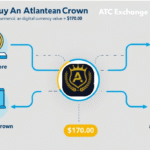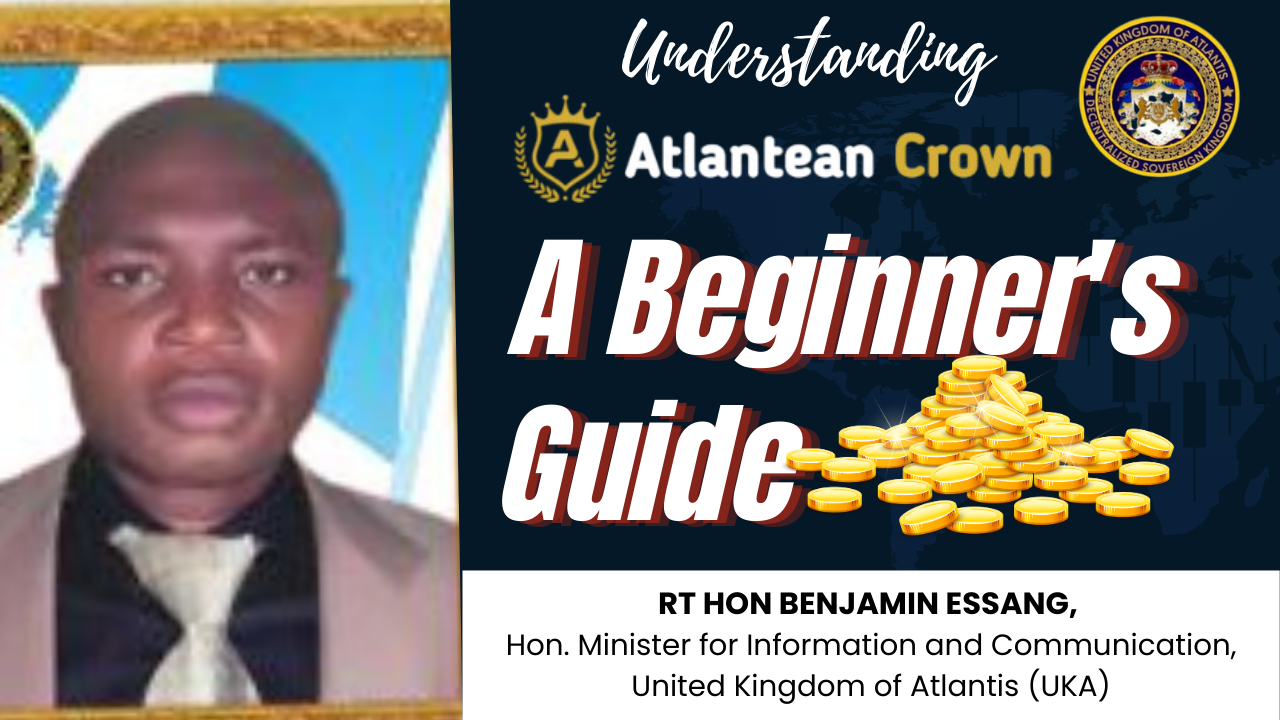Introduction
In the rapidly evolving landscape of digital finance and digital economy boom, the United Kingdom of Atlantis (UKA) has taken a pioneering step by adopting the Atlantean Crown (ATC) as its official digital currency. This strategic move signifies UKA’s commitment to embracing innovative financial solutions that align with the global shift towards decentralized economies.
The Genesis of Atlantean Crown (ATC)

The Atlantean Crown (ATC) was conceived as a response to the growing need for a secure, efficient, and universally accessible digital currency within UKA. Recognizing the limitations of traditional financial systems, UKA’s leadership envisioned a currency that would not only facilitate seamless transactions but also empower its citizens economically.
On February 24, 2021, UKA officially enacted legislation to adopt ATC as its lawful digital currency for all online and digital transactions. This landmark decision was endorsed by prominent leaders, including H.I.M. Dr. Solomon U. Winning, the Reigning Monarch, and H.E. Dr. Mike Kelechi, Prime Minister of UKA. The United Kingdom of Atlantis
Official Recognition and Registration
To ensure transparency and accountability, ATLANTIAN CROWN LIMITED, the entity behind ATC, was officially registered as a private company limited by shares in the United Kingdom. This registration underscores UKA’s dedication to aligning with international regulatory standards and fostering trust in its digital currency initiatives. The United Kingdom of Atlantis
Technological Backbone: Blockchain Innovation
ATC operates on a robust blockchain infrastructure, ensuring decentralized control, enhanced security, and real-time transaction capabilities. This technology eliminates the need for intermediaries, reducing transaction costs and increasing efficiency. Users benefit from features such as:
- Universal Access: Global connectivity that transcends borders.
- 24/7 Availability: Uninterrupted access to funds and services.
- High-Speed Transactions: Rapid processing times for all transactions.
- Advanced Security: State-of-the-art encryption protocols to safeguard assets. ATC Finance
Economic Implications for UKA
The adoption of ATC is poised to revolutionize UKA’s economy by:
- Enhancing Financial Inclusion: Providing unbanked populations with access to digital financial services.
- Stimulating Economic Growth: Facilitating easier trade and investment opportunities.
- Reducing Transaction Costs: Minimizing fees associated with traditional banking systems.
- Promoting Transparency: Leveraging blockchain’s immutable ledger to ensure accountability.
Global Positioning and Future Prospects
UKA’s initiative places it at the forefront of digital currency adoption among nations. By embracing ATC, UKA not only modernizes its financial infrastructure but also sets a precedent for other countries exploring similar paths. The potential for international collaborations and integrations with global financial systems presents exciting opportunities for ATC’s expansion.
Conclusion
The Atlantean Crown (ATC) embodies UKA’s vision for a progressive, inclusive, and technologically advanced economy. As digital currencies continue to reshape the global financial landscape, UKA’s proactive approach ensures its citizens are well-positioned to thrive in this new era.
Let me know what you think about this innovation in the comment section below. You can also take a bold step to open you own account with ATLANTEAN CROWN official website.










The Atlantean Crown (ATC) seems like a groundbreaking step towards modernizing UKA’s financial system. The idea of a digital currency that eliminates intermediaries and reduces transaction costs is truly innovative. I’m curious how ATC will ensure accessibility for all citizens, especially those who might not be tech-savvy. What measures are in place to prevent fraud or hacking, given its reliance on blockchain? The potential for international collaboration is exciting, but how will ATC handle exchange rates and compatibility with other currencies? It’s impressive that UKA is leading this digital revolution, but I wonder if there’s a long-term plan to educate the public about using ATC effectively. Do you think this initiative will truly empower citizens economically, or could it widen the gap between the tech-literate and others? What are your thoughts on the economic risks versus the benefits?
The Atlantean Crown (ATC) seems like a bold step toward modernizing UKA’s economy, but I have a few concerns. How will the average citizen, especially those less tech-savvy, adapt to this new digital currency? The idea of reducing transaction costs is great, but what about the potential risks of hacking or system failures? I’m also curious if ATC will truly be universally accessible or if there will be barriers for lower-income individuals. The mention of international collaborations is exciting, but how will UKA ensure ATC’s stability in a volatile global market? Overall, it’s an ambitious project, but does the leadership have a solid plan to address these challenges? What do you think about its long-term feasibility?
The Atlantean Crown (ATC) seems like a bold and innovative step towards modernizing the financial system in UKA. The idea of a secure, efficient, and universally accessible digital currency is definitely appealing, especially in a world where traditional systems often fall short. The use of blockchain technology to ensure decentralization and security is a smart move, as it addresses many of the current issues with financial transactions. It’s impressive how UKA is positioning itself as a leader in digital currency adoption, potentially setting an example for other nations. However, I wonder how the transition to ATC will be managed for those who are less tech-savvy or resistant to change. What measures are in place to ensure inclusivity and accessibility for all citizens? Overall, this initiative could be a game-changer, but it’s crucial to address these concerns to truly empower everyone in the economy. What do you think about the potential challenges and how they might be overcome?
It’s great to see platforms like JiliOK Download prioritizing player safety and smart gaming through AI insights. A refreshing blend of tech and care in the gambling space.